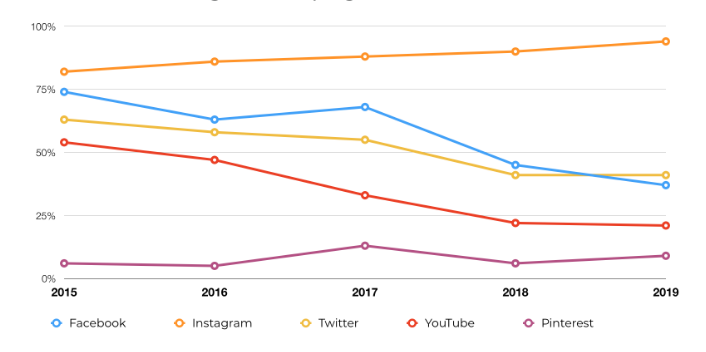
Instagram, is getting rid of the like feature, in a phased manner. The breakup with ‘like’, will be implemented in the US, Australia followed by other countries.
The photo and video sharing social network conducted a study that revealed ‘likes’ in social platforms is taking a heavy toll on the mental well being of the users. The social media platforms generate revenue by creating an influencer pool that helps companies run brand ambassador campaigns with content creators directing focussed ads.
Excessive social media use can be problematic, leading to sleep disruption, productivity loss, and interpersonal conflicts and acute depression. While “social media addiction” remains a highly contested term in the scientific community, the similarities between online interactions and addictive behaviors are raising concerns.
That’s why Instagram, which is owned by Facebook, has started testing out a new policy to remove visible likes from the platform. While users could previously see how many likes others had received on their posts, now they will only see the likes on their own photos.
Instagram first started hiding likes in Canada back in May and has expanded the trials to Ireland, Italy, Japan, Brazil, Australia, and New Zealand. The platform started testing removing likes in the U.S. in November.
 A comprehensive survey by CreatorIQ’s analytics, reveals that sponsored campaigns on the world’s largest video sharing site YouTube, still command the highest average engagement rate, 5.19%, compared to Instagram’s average of 2.62%. Of course, different campaigns may have different performance goals across various platforms.
A comprehensive survey by CreatorIQ’s analytics, reveals that sponsored campaigns on the world’s largest video sharing site YouTube, still command the highest average engagement rate, 5.19%, compared to Instagram’s average of 2.62%. Of course, different campaigns may have different performance goals across various platforms.
Instagram Single photo shares have the maximum reach (2.85%) compared to posts with multiple photos(2.14%). Video posts have a reach of 1.67%. Other platforms are soon expected to follow Instagram’s move soon.

Post Your Comments